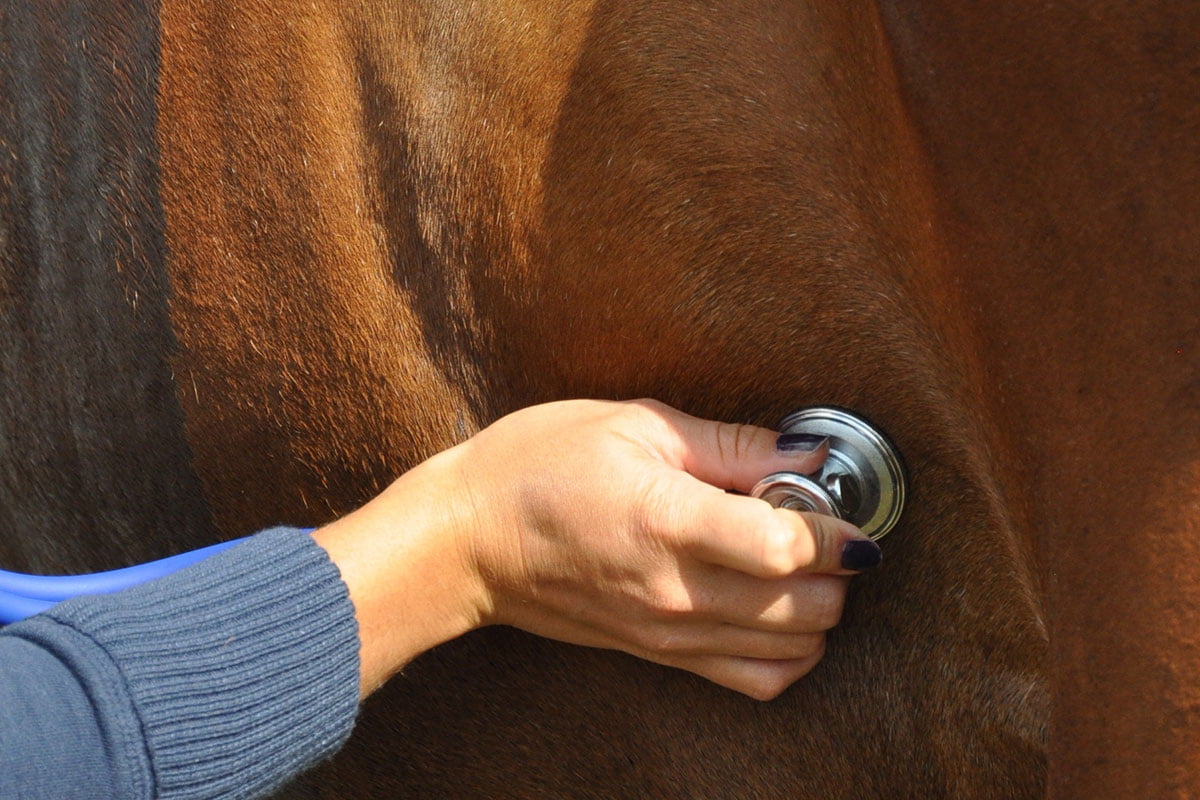Colic, the word no horse owner wants to hear. Why? Because colic kills more horses than any other condition.
So what is colic and why do horses get it? Colic is a term used to describe how horses respond to any type of abdominal pain. They stop eating and drinking, they look at their belly, they get up and down, they may roll, they may start sweating and in severe cases they become violent. Horses are always at risk to colic because the intestinal tract is very long and changes diameter many times going from small diameter to large and back again. Add to that a horse cannot vomit and you’ve got big trouble when things go bad.
So you can’t change the anatomy of the horse but here is a list of things that you can do to prevent colic in your own horse.
- Feed at the same time every day.
- Feed excellent quality hay and plenty of it. A horse should eat 2% of his body weight in hay per day. That’s a minimum of 20lbs of hay per day for a 1000lb horse. Free choice hay and pasture is optimal.
- Feed grain only as needed to energy and condition. Many horses do very well on excellent quality hay, salt and water.
- Never feed more than 5lbs of grain per feeding. Divide the amount of grain needed into 2 equal feedings.
- Provide exercise daily. Exercise increases gastrointestinal motility, stall rest slows gastrointestinal motility.
- Deworm correctly, use fecal testing to guide the timing and choice of deworming products.
- Never ever let the water run out. Clean, fresh water is always best.
- Use feeders for grain, hay and salt, avoid placing them on the ground, especially if sandy areas.
- Never put a round bale of hay out without first using small quantities of hay to get them used to eating hay.
- Make all feed and hay changes slowly over several days.
Over the years we’ve learned that the most important thing a horse owner can do is to get help immediately.
Many of the conditions that cause colic can become life threatening in a relatively short period of time. Only by quickly and accurately recognizing colic – and seeking qualified veterinary help – can the chance for recovery be maximized.
The longer you wait, the more you walk, the more Banamine you give, the lower the horses’ chance for survival and the more costly a cure will be.

